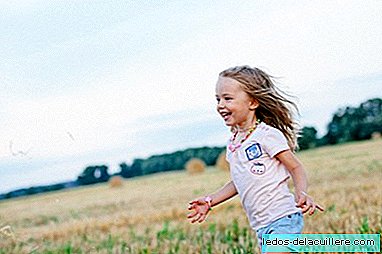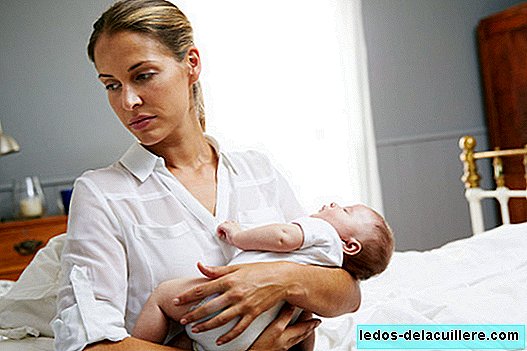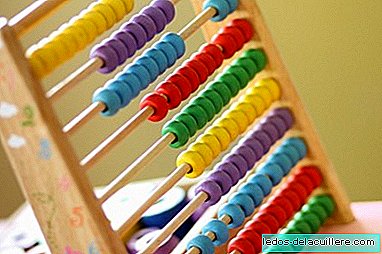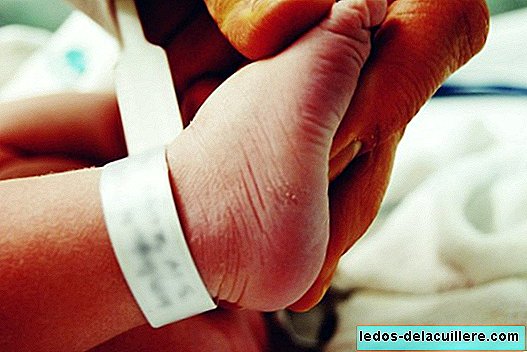
As parents, we are concerned that our children have everything they need for healthy development. We know for example, the importance of a good diet, of taking care of your health to prevent diseases and of not exceeding ourselves with those habits or activities that may have some negative effect on your development, such as screen times.
In order to comply with all this, it is important to keep updated and know the advice of professionals, such as the new recommendations published by the World Health Organization (WHO), so that children under five years of age have healthy growth and development, among which stand out that they need to sit less and play more.
Through a statement on its website, WHO has highlighted the importance of establish good habits from an early age for healthy development:
"Achieving health for all means doing what is best for health from the beginning of people's lives"says the director general of WHO, Dr. Tedros Adhanom Ghebreyesus."Early childhood is a period of accelerated development and a time when family lifestyle patterns can be adapted to boost health benefits".
After analyzing the effects that inadequate rest can have on children, as well as certain sedentary activities, such as excessive use of electronic devices or prolonged stay in chairs or strollers, WHO shared a new downloadable document entitled "Recommendations on physical activity, sedentary behavior and rest - For children under 5 years".
In addition to analyzing the negative effects of the aforementioned activities, they also analyzed the existing evidence of the benefits of high levels of physical activity in children, resulting in all this in a new series of recommendations that children should follow according to their age and within a 24-hour period.
For babies under one year old

For children under one year, within a 24-hour period the recommendations are as follows:
- Being physically active many times during the day and in several different ways, particularly through playing on the ground. The more the better. For babies who do not crawl or walk, this includes at least 30 minutes a day on his belly while awake.
- Do not remain tied or detained for more than one hour at a time (for example in strollers, high chairs or ported on the back of the caregiver).
- Exposure to screens during this age is not recommended. When the baby is sedentary, it is suggested to participate in reading and storytelling activities.
- For a good rest, babies from zero to three months should sleep from 14 to 17 hours a day including naps, while babies four to eleven months should sleep 12 to 16 hours a day.
For children from one to two years old

In the case of children from one to two years of age, the daily recommendations are:
- To have at least 180 minutes of physical activities of different intensity, including moderate to intense physical activity, divided throughout the day. The more the better.
- Not be tied or detained for more than an hour at a time (for example in strollers, high chairs or ported on the back of the caregiver), nor remain seated for extended periods of time.
- For one-year-old children, sedentary screen time (including watching TV or videos and playing video games) is not recommended. For two year olds, sedentary screen time should not exceed one hour, the less the better. When the child is sedentary, it is suggested to perform reading and storytelling activities.
- For a good rest, they should sleep from 11 to 14 hours a day, including naps and follow a constant and regular schedule.
 In Babies and more These are the five habits you must follow to prevent your children from suffering from obesity
In Babies and more These are the five habits you must follow to prevent your children from suffering from obesityFor children three to four years old

The recommendations for children aged three to four are:
- Have at least 180 minutes of physical activities of different intensity, within which at least 60 minutes must be of moderate to intense physical activity, distributed throughout the day. The more the better.
- Do not remain detained for more than one hour (for example in strollers and high chairs), nor remain seated for extended periods of time.
- Sedentary screen time should not exceed one hour, the less the better. When the child is sedentary, it is suggested to perform reading and storytelling activities.
- For a good rest, they should sleep 10 to 13 hours a day, including a nap and following a constant and regular schedule.
Why it is important to follow these recommendations
In addition to these new WHO recommendations, we had previously shared advice on physical activity and screen time of the Spanish Association of Primary Care Pediatrics, finding that both agree that The more physical activity and adequate rest, the better development children will have.
 In Babies and more Do you want your children to adopt healthy habits? Apply and set an example
In Babies and more Do you want your children to adopt healthy habits? Apply and set an example WHO explains that it is important to improve the quantity and quality of physical activity in children, as well as reduce their sedentary lifestyle and ensure that they have adequate rest, as All this will help improve your physical and mental health, as well as your overall well-being, also helping to prevent childhood obesity and other health problems in the future.
Remember also that good habits start from childhood, so helping our children get used to being active and resting well, they can continue with this type of routines during childhood, adolescence and adult life, ensuring healthy development and growth.












